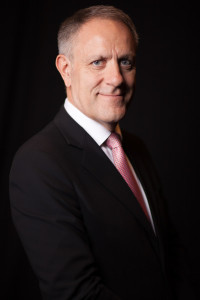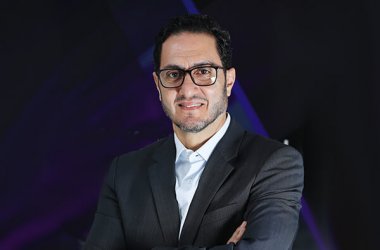Mobile payments market is growing at a rapid pace along with the adoption of mobile phones, and is slated to reach $78 billion by 2019. The Middle East and North Africa region is said to be the biggest market for mobile money services, supplemented by enhanced network connectivity. Rutger Reman, President, Ericsson Industry and Society Unit, Region Middle East, talks about the trends, challenges and opportunities in this space.
What is driving the widespread introduction of mobile payments systems in the region?
The m-commerce industry is set for huge growth and is expected to process over $800 billion globally by 2016. There are two key drivers of mobile payments – in developing markets banking the unbanked will open new opportunities for revenue streams, while developed markets will see the increase of payments going mobile.
It’s no secret that mobile financial services are poised to be a global game changer; looking at the numbers alone one sees the incredible figures that are really driving the expansion of this industry. Globally, 1.5 billion people have a bank account, while over 6 billion have access to a mobile device. Making mobile payments access could potentially triple the business of money for financial service providers, banks and operators.
Conventional retail is undergoing a convergence on mobile phones with the emergence of mobile retail and social retail. Society today uses their mobile phone for everything, from communication to video streaming and researching products, so the next natural step for them to take is mobile shopping – the demand is there. In fact, in a few years the mobile wallet is expected to replace conventional credit and debit cards, which is further propelling this demand for m-commerce.
Operators have a huge stake in the mobile money market, instead of being dumb pipes – there are growth benefits for all stakeholders involved, from operators and banks to countries and consumers. It also opens the doors to leverage innovation in new and exciting ways.
The freedom to spend, send and receive money with a mobile phone is quickly becoming an essential part of life for billions of people. It’s a cornerstone of the Networked Society, a strong driver of ubiquitous access to mobile money and a great business opportunity. It also calls for change. A change where existing payment networks are connected and interoperable – making m-commerce as easy as cash.
Does it offer an opportunity for operators to create additional revenue streams?
Mobile money offers operators immense potential in terms of business. It gives them the opportunity to become a payment gateway for all mobile wallet solutions. This industry will open doors for operators to become more than telecoms providers, it gives them the opportunity to become integrated lifestyle partners.
From buying a coffee to paying bills or sharing money with the family back home, current financial services are either too complex, time consuming or expensive for all the small transactions that we make every day. M-commerce enables both operators and banks to mobilize this “long tail” of small transactions by making payments simpler, more affordable and easily accessible for the whole value chain.
The mobile phone is a single platform that can offer a multitude of services from data connectivity, security, financial transactions, mapping and more. Operators are perfectly poised to take advantage of this and create ubiquity across the entire ecosystem. They can turn these small revenue streams into big business by offering every client the benefits of being a banking customer: convenience, security, inclusion and empowerment.
What are the key strategic success factors for operation in the mobile money service space?
For m-commerce to gain traction in regions with low financial inclusion, a number of factors must be addressed. Of course, regulatory climates also introduce new complexities. Therefore, a range of business models must be considered when determining how to best approach a market. These include regulation linking mobile operators and financial institutions, supportive government policy, security, consumer education and local system capacity.
We drive this change of making money more open by orchestrating collaboration between banks and operators and developing secure, flexible m-commerce platforms that help build an interconnected and transparent financial ecosystem.
At Ericsson, we believe that when banks and operators collaborate to make money open, everyone will benefit.
Will telecom operators need to upgrade their network and billing infrastructure to offer mobile money services?
As mobile money becomes increasingly integrated into societies we will witness the evolution of intelligent networks. Today, outdated legacy systems are the foremost barrier of mobile money growth – because the user demand and business opportunities are robust. However, most assets are already in place and have been tested on a global scale – so there is no need to build the infrastructure from scratch. Mobile phones act as payment terminals and phone numbers act as identifiers. The assets are already there.
Mobile wallet solutions will have a positive impact on the entire ecosystem, form network operating centers, to the dynamics of the infrastructure and the use of big data. In terms of usage, customer experience becomes paramount. The regulation of traffic, rich data communications and a myriad of other factors have to come together and offer a seamless experience.
What are the security and privacy implications of mobile money? How can mobile operators address these?
Money transfers, regardless if they are cash, credit card or mobile will always come with security concerns. If we think of credit cards, their use and security measures have evolved with technology. As the mobile commerce category develops it will come with its own threats. However, these threats are mitigated by the layers of security that already exist within the ecosystem – security that has been laid down by the various stakeholders including mobile and app manufacturers, banks and the operators themselves.
In addition, mobile money is much safer to use and carry around than cash, and it gives people quick access to use and transfer funds. For people living in developing nations, unable to access regular bank accounts, commonly referred to as “the unbanked”, mobile money services give them a safe way to save and transfer money without the risks that come with cash.
Ericsson M-Commerce solutions are comprehensive and interconnected services and products built on a scalable and secure open platform—so that operators can offer flexible plans and competitive prices to people everywhere, including more than a billion mobile users who don’t have bank accounts.





